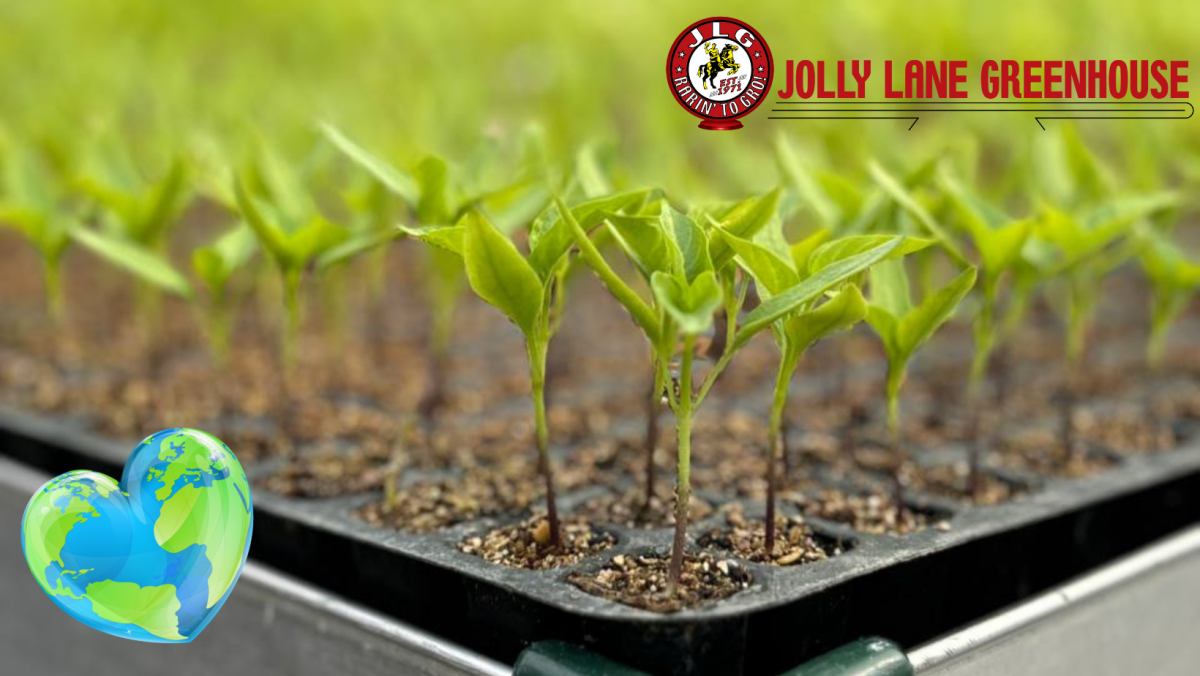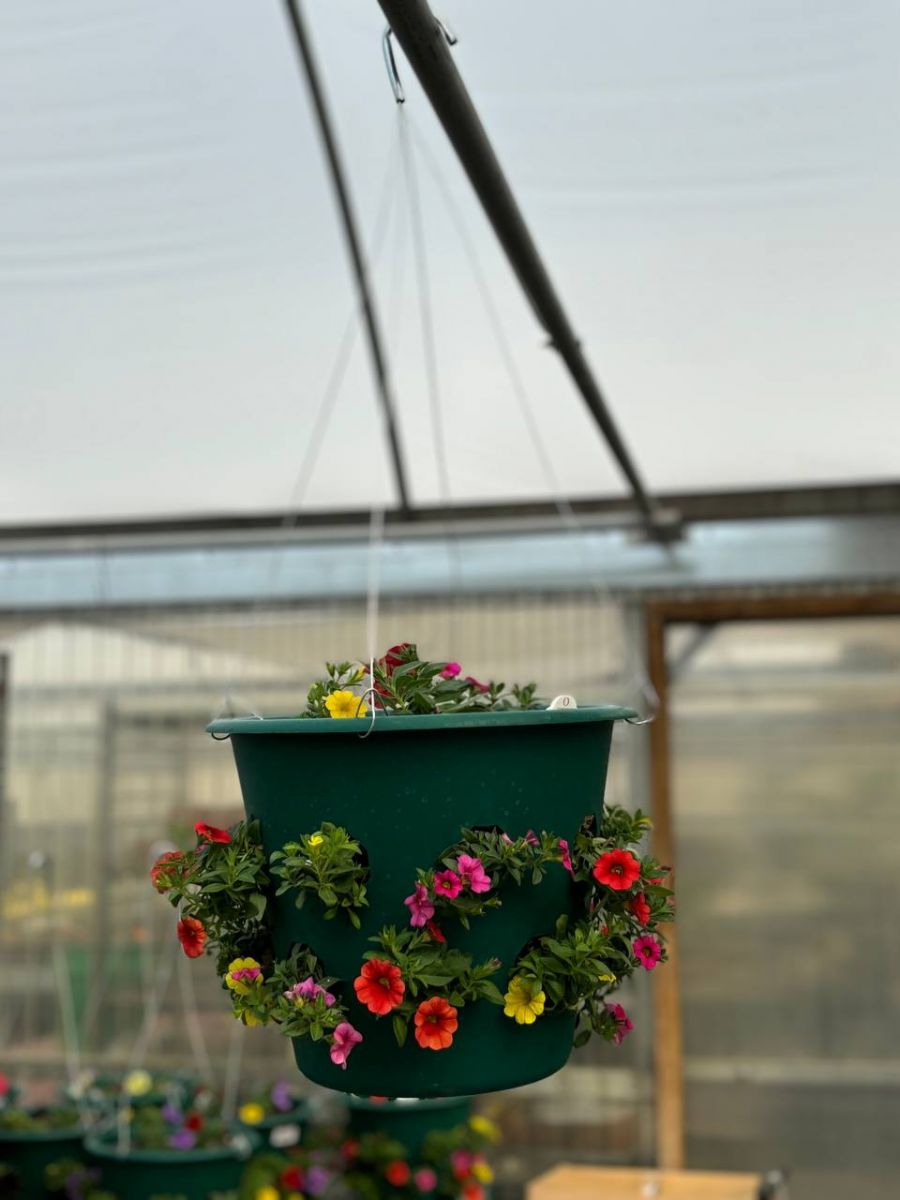
With Earth Day just around the corner, it's the perfect time to dig into how we can cultivate a healthier planet through sustainable gardening techniques. Not only do these practices make our gardens bloom beautifully, but they also play a significant role in environmental preservation. By embracing eco-friendly gardening tips, we can minimize waste, conserve resources, and create habitats that support local wildlife. In this blog, we'll delve into key sustainable gardening practices, identify beneficial pollinator-friendly plants for your garden, and explore how to create a safe environment for outdoor critters. Let's celebrate Earth Day 2025 by making impactful changes in our gardening habits!
Understanding Sustainable Gardening

Sustainable gardening is an approach that prioritizes environmentally friendly, economically viable, and socially responsible practices. It focuses on promoting ecosystem health to ensure that gardening remains enjoyable for future generations. The significance of sustainable gardening lies in its ability to conserve resources, support biodiversity in gardens, and reduce the carbon footprint of our gardening activities.
Through methods like crop rotation, composting for beginners, and organic pest control, sustainable gardening positively impacts the environment. These techniques enhance soil health, lower water usage, and reduce the need for chemical fertilizers and pesticides. This not only improves the quality of produce but also protects local wildlife and ecosystems. Sustainable gardening contributes to climate change mitigation by sequestering carbon and fostering resilient plant communities.
Key principles of sustainable gardening include selecting native plants that require less water and maintenance, employing water conservation methods such as rain gardens and drip irrigation, and creating habitats for beneficial insects and wildlife. Additionally, sustainable gardeners aim to reduce waste through composting and recycling materials, creating a zero-waste gardening system that benefits both the garden and the environment. By adopting these principles, we can all contribute to promoting sustainable gardening, especially during Earth Day and beyond.
Top Sustainable Gardening Practices to Implement

Earth Day is the perfect opportunity to embrace sustainable gardening practices that nurture our planet. One effective technique to enhance soil health is composting for beginners. By recycling organic waste like kitchen scraps and yard debris, gardeners can produce nutrient-rich compost. This not only improves soil structure and fertility but also reduces landfill waste, benefiting both the environment and your garden.
Water conservation is another crucial aspect of sustainable gardening. Techniques such as rain gardens can significantly reduce water runoff and improve drainage. These gardens capture and absorb rainwater, providing a natural filtration system that supports plant growth while conserving water resources. By letting nature manage water usage, gardeners can create a more resilient and sustainable landscape.
Using native plants is fundamental to supporting local ecosystems. Native plants are adapted to local climates and soil conditions, requiring less water and maintenance. They also provide essential habitats for local wildlife, including pollinators like bees and butterflies. Incorporating these plants into your garden enhances biodiversity in gardens and contributes to the overall health of the environment.
Top Pollinator-Friendly Plants for Your Garden
Pollinator-friendly plants are vital for attracting beneficial insects such as bees, butterflies, and hummingbirds. These plants support pollinators that are crucial for the reproduction of many flowering plants and crops. Incorporating pollinator-friendly plants into your garden enhances its beauty and contributes to a healthier environment.
Choosing the right plants is key to promoting an eco-friendly garden. Pollinator-friendly plants encourage biodiversity, which is essential for a resilient ecosystem. They create habitats for pollinators, improve soil health, and reduce the need for chemical pesticides and fertilizers. By selecting native pollinator-friendly plants, you support local wildlife and contribute to the planet's health.
Some top pollinator-friendly plants include:
- Milkweed: Essential for monarch butterflies, milkweed provides a habitat for their larvae and attracts other pollinators.
- Lavender: Known for its fragrant blooms, lavender attracts bees and adds a delightful scent to your garden.
- Echinacea (Coneflower): This hardy perennial is not only beautiful but also a favorite among bees and butterflies.
- Black-eyed Susan: With its vibrant yellow petals, this plant blooms throughout the summer, providing a consistent food source for pollinators.
Integrating these pollinator-friendly plants into your garden creates a thriving ecosystem that supports wildlife while promoting sustainable gardening practices this Earth Day.
Fostering a Safe and Healthy Garden for Outdoor Critters
Creating a garden that serves as a haven for outdoor critters enhances biodiversity in gardens and contributes to a healthier ecosystem. One simple way to attract beneficial wildlife is by planting native species that provide food and shelter. Native plants are well-adapted to local climates and soil types, making them easier to maintain and offering a rich habitat for pollinators like bees and butterflies, as well as birds and small mammals.
To ensure your garden remains a safe space for these creatures, it's essential to protect it from pesticides. Many conventional pesticides can harm not only targeted pests but also beneficial insects and wildlife. Opt for organic gardening practices, using natural pest deterrents and companion planting techniques to maintain a balanced ecosystem. By avoiding harmful chemicals, you encourage a thriving environment where critters can flourish.
Additionally, consider ways to protect your garden from common predators that threaten smaller wildlife. Installing birdhouses, bat boxes, or insect hotels can provide safe nesting sites, while creating a diverse landscape with plenty of ground cover offers shelter from larger animals. Incorporating water features, such as bird baths or small ponds, can attract a variety of creatures, ensuring your garden remains a lively and sustainable habitat.
Celebrate Earth Day with Jolly Lane!

As Earth Day approaches, there's no better time to visit Jolly Lane and enhance your garden with sustainable practices that benefit both you and the environment. Our garden center is dedicated to promoting eco-friendly gardening, and we have everything you need to create a thriving, sustainable landscape.
At Jolly Lane, we offer a wide variety of plants, from native species that require less water to healthy vegetable transplants that can thrive in your backyard. Our selection is carefully curated to ensure you can find the perfect plants that not only beautify your space but also support local ecosystems. Whether you're looking to add vibrant flowers to your garden or start a small herb patch, our extensive inventory has something for everyone.
What sets Jolly Lane apart is our experienced staff. They are always ready to share essential gardening tips and tricks to help you cultivate a healthy, eco-friendly garden. From soil health to pest management, our team provides valuable insights tailored to your specific gardening needs. This Earth Day, let us help you create a garden that not only flourishes but also contributes to the well-being of our planet.
